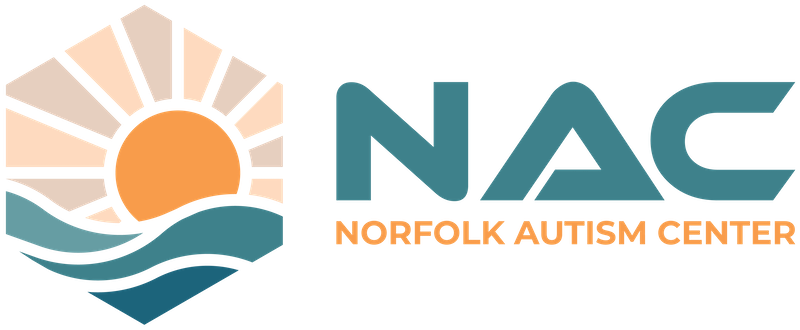Autism Spectrum Disorder (ASD) Affects Your Entire Family
When a child is diagnosed with Autism Spectrum Disorder (ASD), this diagnosis affects the entire family. You and your family need the skills and resources to help your child with ASD to grow in a nurturing, supportive environment. Norfolk Autism Center doesn’t just treat your child. We help guide your whole family.
Family training is essential to the success of a treatment plan for a child with autism
As a parent, you play a pivotal role in your child’s daily life and routines. An autism diagnosis impacts the entire family, as siblings without a diagnosis may encounter difficulties in forming connections with their diagnosed brother or sister. This underscores the importance of family training in any ASD treatment plan. By fostering long-term success for the child with autism through skill generalization, improved communication, consistency, and collaborative efforts, family training becomes an essential component of the treatment journey.

Key Components of Family Training for Autism Spectrum Disorder
There is a lot to learn once you received an ASD diagnosis for your child, and it can be overwhelming. But don’t worry – Norfolk Autism Center was founded by the Hartman’s, a family that received the same diagnosis for their young child and set out to create the most compassionate and effective treatment program available. Norfolk Autism Center focuses on these key components for the entire family:
Education and Information
We understand the need for answers to the many questions you have when you receive a diagnosis of autism spectrum disorder for your child. You’ll want to have as much information as you can get to fully understand the condition, its characteristics and what treatment will look like for your family.
Skill Development
Our family training teaches all family members specific strategies and techniques to support your autistic child’s development and well-being. We’ll work on communication, behavior management, social skills, and daily living skills to enhance the overall quality of life for everyone involved.
Behavior Management
We’ll teach you how to identify behavior triggers and implement proactive strategies so you have fewer negative encounters, and more positive and supportive interactions with your child.
Communication Strategies
Reinforcing the communication and social interaction skills learned at the center in all other environments increases the likelihood of better integration into various social settings and improves the overall well-being for your autistic child.
Problem-Solving and Coping Skills
We’ll help all the family members develop good problem-solving and coping skills so everyone manages the stress of raising a child with autism as seamlessly as possible. We’ll address family dynamics, and get you the support resources needed to allow the entire family to thrive.
Incorporating Training Into Daily Routines and Activities of Families with Autism Spectrum Disorder
One of the key aspects of family training is learning how to integrate intervention strategies into the daily routines and activities of your child with autism. By embedding these strategies into everyday life, families maximize the effectiveness and promote skill generalization across various settings.

Here are some tips to incorporate these tools into your daily routines:
Identify Natural Opportunities
Practice your skills during mealtime, playtime, on outings, and especially with bedtime routines.
Create Visual Supports
Visual supports, such as visual schedules, picture communication boards, or social stories, can help your child with autism understand expectations and navigate daily routines more independently. Work with therapists to create personalized visual supports tailored to your child’s needs and preferences.
Use Positive Reinforcement
Incorporate positive reinforcement and rewards into daily routines to motivate and encourage desired behaviors. This could involve offering praise, stickers, tokens, or preferred activities as rewards for completing tasks or demonstrating appropriate behaviors.
Model and Prompt
Model desired behaviors and provide prompts or cues to support your child’s learning and participation in daily activities. Use simple language, gestures, or visual cues to help your child understand what is expected and how to respond appropriately.
Provide Structure and Predictability
Establish consistent routines and schedules to provide structure and predictability for your child. This can help reduce anxiety and support your child’s ability to transition between activities and environments more smoothly.
Encourage Independence
Encourage your child to participate in daily activities to the best of their abilities, promoting independence and self-sufficiency. Offer support and assistance as needed, gradually fading prompts and cues as your child gains confidence and skill mastery.
Contact us to get started today
Overall, receiving a diagnosis of autism for your child can be overwhelming, but by seeking support, educating yourself, finding professional help, developing a treatment plan, advocating for your child, and taking care of yourself, you can navigate this journey with strength, resilience, and hope for your child’s future.
Call us today to see how family training can help you create a more harmonious and peaceful home, despite an autism diagnosis for your child. We’re here to help!
